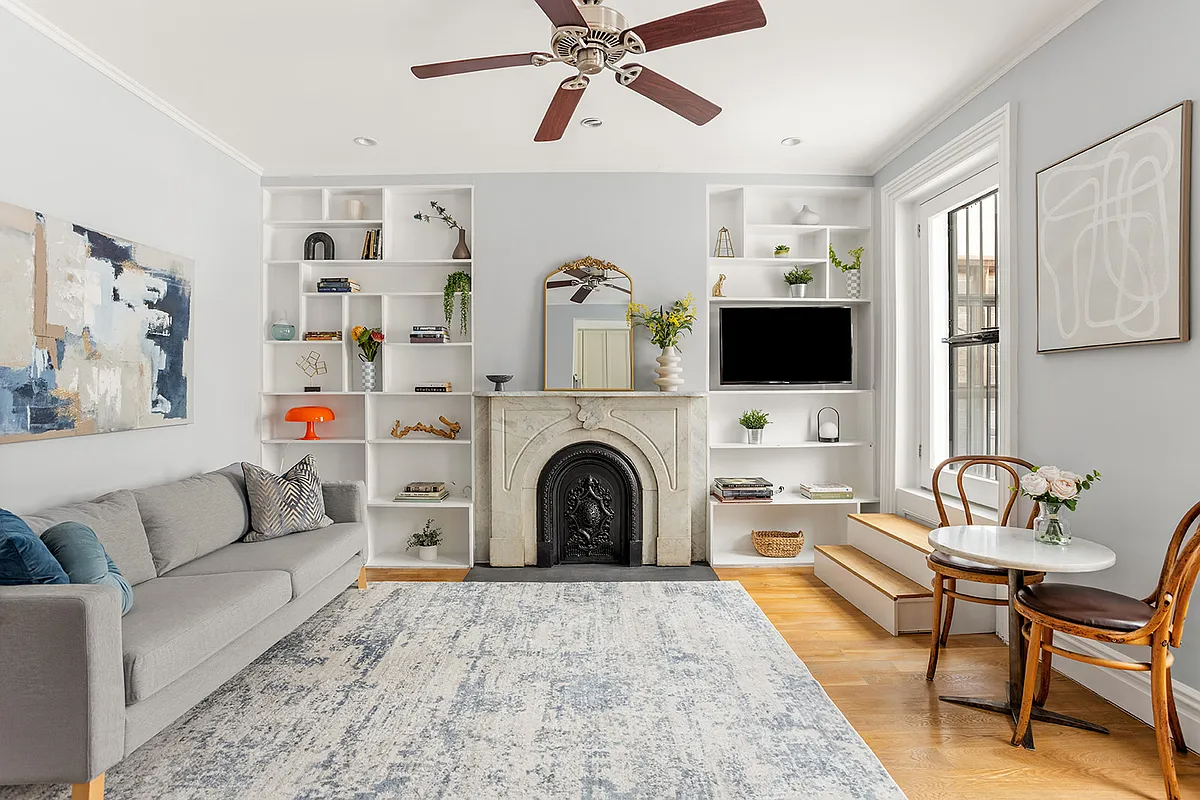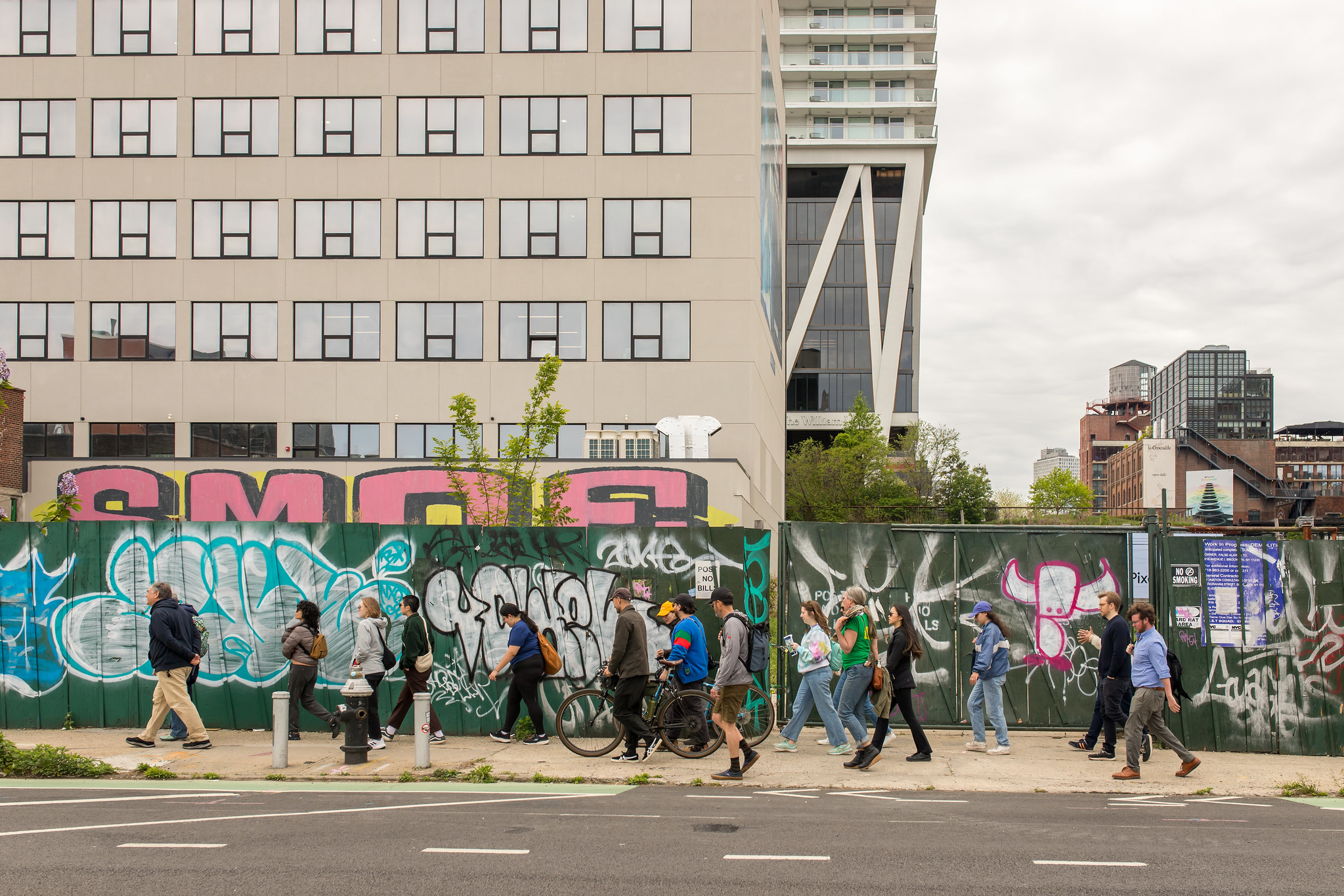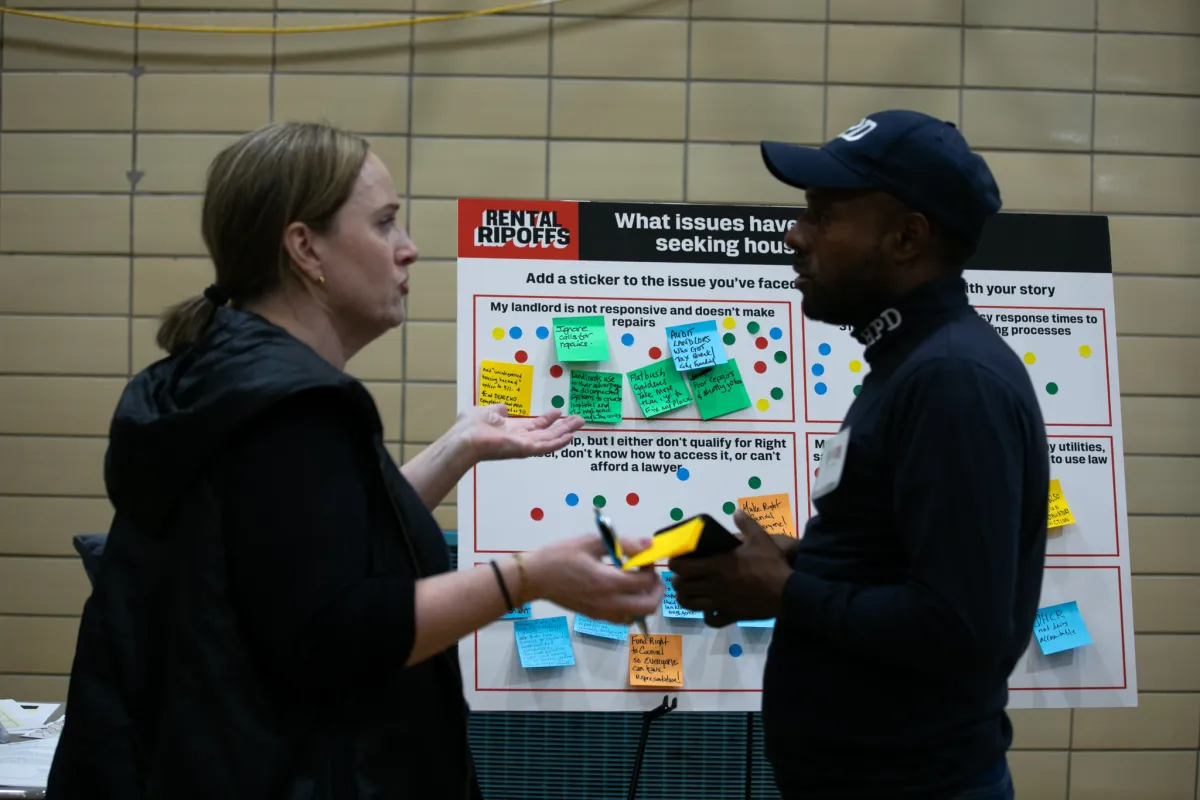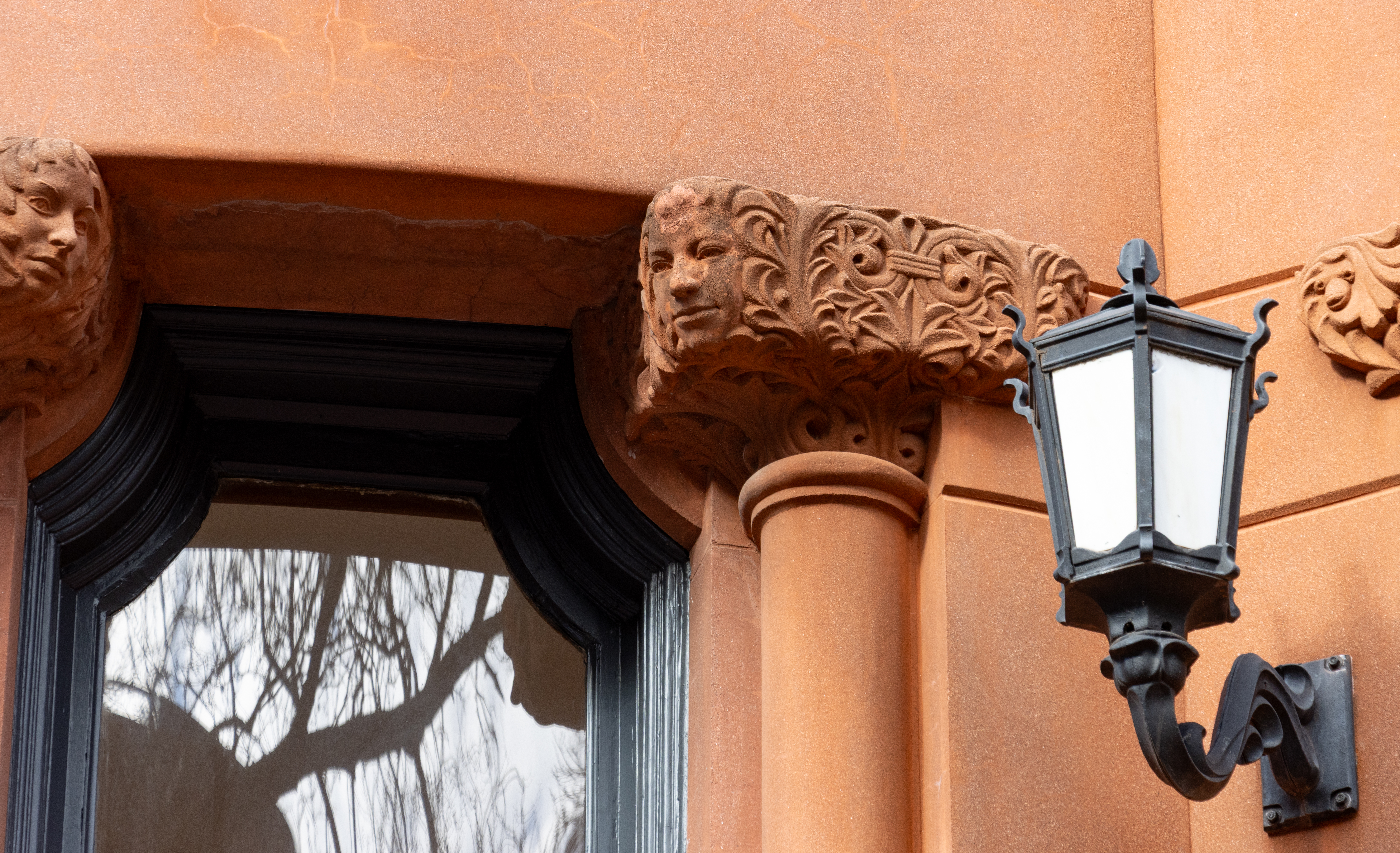New Kosciuszko Bridge Won't Come Cheap
In October, a Department of Transportation panel narrowed the list of potential designs for the new Kosciuszko Bridge down to three finalists, including what The Brooklyn Paper calls the front runner, above. In addition to a new look, the bridge of the future will have nine lanes instead of six (yay!) as well as a…


In October, a Department of Transportation panel narrowed the list of potential designs for the new Kosciuszko Bridge down to three finalists, including what The Brooklyn Paper calls the front runner, above. In addition to a new look, the bridge of the future will have nine lanes instead of six (yay!) as well as a bike and pedestrian lane; the whole thing will be set at less of an incline than the current structure because tall boats no longer go underneath. All this good stuff won’t come cheap though: We’re looking at a $1 billion price tag. Sounds like a lot of dough to us, but apparently that’s what it takes to get bridge builders out of bed these days. For a bridge that is a mile long in New York City, $1 billion is the going rate, said DOT spokesman Adam Levine. The Feds will pay 80% of the freight, leaving the state with the rest. But the state is now talking about slashing its transportation spending, so it remains to be seen of the bridge, over which 160,000 vehicles pass every day, makes the cut.
The Billion-Dollar Bridge! [Brooklyn Paper]





Petebklyn — I couldn’t agree with you more about the far flung folks in the City. That’s why (as Epiphany said) this requires BOTH sides of the equation to work. That’s why congestion pricing failed — too much focus on the “harm” when really it’s just change… public transportation most definitely has to be reevaluated and CHANGED for it to work.
Where are the North-South routes connecting Queens to Brooklyn? Why is everything so Manhattan-centric? Have the commercial centers shifted in this city? (the answer is yes) Is this shift being served by public transportation OR the highways? (the answer is no)
Just because folks of modest or less income *need* a car now, that doesn’t mean it should be that way. In fact, in this city… these folks should most definitely NOT need a car to commute to work. The highways should most definitely be restricted to / be most beneficial to the 3 groups I identified.
tybur6 – we definitly agree about congestion pricing – but considering that despite all the hue and cry re: global warming and dependency on mideast oil we still can get an effective fuel/oil tax should tell you that any broadbased effort to make auto transport expensive is a non-starter.
It is not politically difficult – it is impossible – all your opponent has to say is that you are for the rich, who will be able to drive on empty roads paid for on the backs of the middle class – look what happened to Corzine when he proposed raising the NJ tolls or the screaming about congestion pricing – which hit drivers into lower Manhattan m-f 6-6 (which more or less is ONLY the rich-what middle class person drives in to Manhattan – it cost $30+ to park)
The majority in this city/country just arent interested in having nice, fast mass transit alternatives (which is what you SHOULD get if you raise the taxes for driving)
My friends in London tell me that the congestion pricing there is just another cost of doing business surcharge and that is has done nothing to ease traffic in the center of the city. They also say that the tolls themselves go almost entirely into the maintanance of the toll scanning and tracking system which is extremely complex. The real revenue to the government comes from the exorbitant fines that are issued if one fails to pay the toll in the alotted 24-hour window.
There are a lot more poor people in NYC than in London. I don’t think such a regressive tax will fly here.
Petebklyn makes a very good point. Mass transit is not the same in Bklyn, Queens of the Bronx as it is in Manhattan. In many areas you need a car to get to work because there is little or no mass transit. Or the way the trains and bus lines are laid out, you can’t easily transfer from one to the other.
Another vote for Congestion Pricing. And a toll on the Kosciuszko. That would cut down on single-driver cars, bring money to the city, and pay for a portion of the bridge costs.
This bridge is ready to go. Better get hopping.
Petebklyn:
That’s an excellent point. That’s why public transportation should be reevaluated. Things like dedicated bus lanes, more funds to make public transportation faster, more reliable and more comfortable transport could change the point you make. Unfortunately, the gas and car companies will only fund campaigns of politicians who will make cars the better option.
For the record. I’m far from rich and “luxury”. My greatest asset is that I have an affordable place near excellent public transportation and new bike lanes. And I’m not lazy and overweight.
3) “luxury” users —- nice idea but I would guess that many daily users are not affluent at all and use the highways are parkways to get to jobs that are not central business district. Or travel takes so long using public transit becomes unfeasible. Most people on this site tend to the affluent and working downtown/midtown manhattan and pretty well served by subway at home and work (even with all the complaining about F train, etc). And we tend to think just about everyone else lives/works with similar mass transit options (and works daytime hours). But I believe reality is good %age of workers don’t make as much and their jobs are much more scattered around NYC and region. And their job search/prospects would be much more limited if became too expensive to drive.
Dittoburg and Tybur6:
So at least you do seem to understand and acknowledge the pollution problem. I’m breathing a little easier now.
I can get across the lower bridge across Newtown Creek from Ft. Greene in about 30 minutes (the amount of time that tyburg6 is sometimes sitting in traffic). I can get to Midtown Manhattan in 30 minutes. Chinatown 15 minutes. East Village 20 minutes. Granted if you’ve got to haul kids or it’s raining, it’s an issue. But the times require a bit of new transportation strategy (and we’re lucky we have options and people thinking about it in NY).
You’ve probably biked. It’s good exercise too (besides breathing all the car exhaust).
I love that people think that milk and bread and veggies and all other essentials will just magically appear every day on stores’ shelves without highways, trucks, and traffic.
Other big US cities from DC to San Francisco seem to have a fine, functioning highway and surface transportation system in addition to a fine, functioning mass transit system.
The Bay Bridge had a major problem last week and it was closed for four days. Four days. In NYC it would have been closed for six months and repairs would drag out for two years.